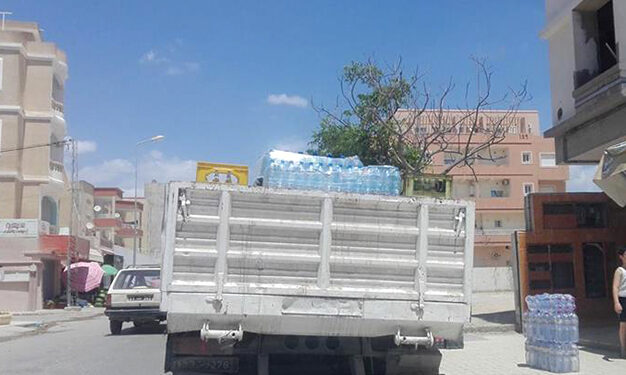The National Food Safety Instance of Food Products (INSSPA) warns against the deterioration of the conditions of transport and storage of bottled waters, a product widely consumed in Tunisia.
The INSSPA launched this Monday, July 21, an urgent call on all the economic players involved in the bottled water distribution chain – transporters, wholesalers, retailers – on Monday July 21, so that they strictly respect the health security rules applicable to this sensitive product.
The INSSPA on the war foot
In a press release published on its official page, the body deplores a proliferation of non -compliant practices, in particular the direct exposure of bottles to the sun’s rays or to humidity sources, whether during transport, storage or selling. Such negligence is likely to alter water quality and threaten the health of consumers.
The body has warned against non-compliance with the health standards in force, claiming that it will closely monitor offenses and apply the law against offenders. It recalls that the bottled water, although perceived as safe, requires rigorous manipulation throughout the distribution chain.
Bottled water dependence
This warning comes as bottled water consumption in Tunisia reaches record levels. Tunisia records an average of 244 liters of bottled water consumed per capita and per year, a world record. This dependence on bottled water is partly explained by distrust of tap water.
In this context, the sanitary quality of bottled water has a crucial public health issue. The conditions under which these products are stored and transported can impact their safety directly, especially during the summer when high temperatures promote the risk of degradation.








